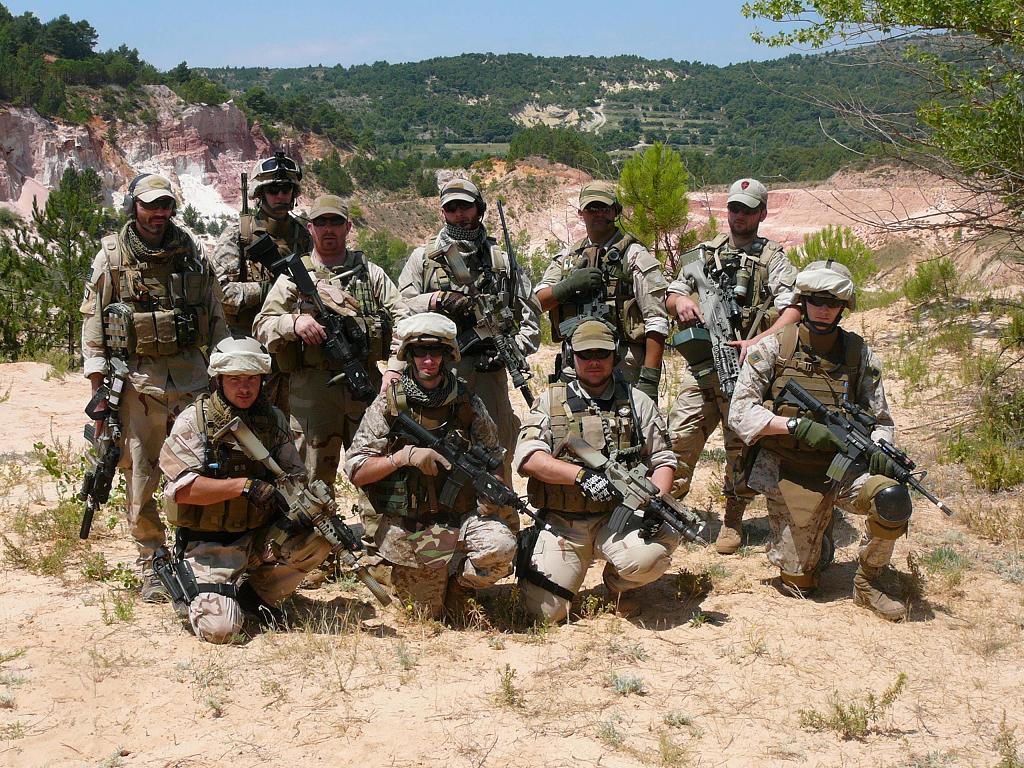When you think of elite military forces, the Navy SEALs often come to mind as one of the most respected and feared units in the world. These highly trained operatives are known for their ability to operate in extreme conditions, execute complex missions, and protect national security. But what exactly do Navy SEALs do? This ultimate guide will delve into the operations, training, and responsibilities of the Navy SEALs, providing you with a comprehensive understanding of their role in modern warfare.
As one of the most elite special operations forces in the world, Navy SEALs undergo rigorous training and preparation to ensure they are ready for any mission. Whether it's conducting covert operations, rescuing hostages, or gathering intelligence, the Navy SEALs are always ready to serve and protect. Their motto, "The Only Easy Day Was Yesterday," reflects the demanding nature of their profession.
This article will explore the various aspects of Navy SEAL operations, including their history, training, tools, and missions. Whether you're a military enthusiast or simply curious about the life of a Navy SEAL, this guide will provide valuable insights into their world. Let's dive in!
Read also:Discover The Inspiring Journey Of John Amos Elisabete De Sousa
Table of Contents
- The History of Navy SEALs
- Navy SEALs Training: The Ultimate Challenge
- BUD/S: The Selection Process
- What Do Navy SEALs Do? Understanding Their Operations
- Tools and Equipment Used by Navy SEALs
- Key Missions of Navy SEALs
- The Psychology of a Navy SEAL
- Challenges Faced by Navy SEALs
- The Future of Navy SEAL Operations
- Conclusion: Why Navy SEALs Matter
The History of Navy SEALs
The Navy SEALs have a storied history that dates back to World War II. Originally formed as the Naval Combat Demolition Units (NCDUs), the SEALs were created to perform underwater demolition and reconnaissance missions. Over the years, their roles and responsibilities have expanded significantly.
During the Vietnam War, the SEALs earned a reputation for their effectiveness in guerrilla warfare and counterinsurgency operations. This period solidified their status as an elite special operations force. Today, the SEALs continue to evolve, adapting to modern threats and challenges while maintaining their core mission of protecting national security.
Some key milestones in the history of Navy SEALs include:
- 1942: Formation of the NCDUs
- 1962: Establishment of SEAL Teams ONE and TWO
- 2001: Increased prominence in the War on Terror
Navy SEALs Training: The Ultimate Challenge
Navy SEAL training is one of the most grueling and challenging experiences in the world. It is designed to push candidates to their limits, testing both their physical and mental endurance. The process begins with Basic Underwater Demolition/SEAL (BUD/S) training, which lasts approximately six months.
BUD/S is divided into three phases: Basic Conditioning, Diving, and Land Warfare. Candidates must demonstrate exceptional physical fitness, mental toughness, and teamwork skills to succeed. Only a small percentage of those who enter BUD/S training graduate as Navy SEALs.
Key Components of Navy SEAL Training
- Physical Fitness: Candidates must excel in swimming, running, and strength exercises.
- Mental Resilience: The training emphasizes the ability to remain calm under pressure.
- Teamwork: Success in BUD/S requires strong collaboration and communication skills.
BUD/S: The Selection Process
Basic Underwater Demolition/SEAL (BUD/S) is the primary selection process for Navy SEAL candidates. This program is designed to identify individuals who possess the necessary qualities to become SEALs. The selection process includes:
Read also:Exploring The World Of Snow Whites Enchanting Seven Dwarfs
- Physical Endurance Tests (PET)
- Swimming and Diving Exercises
- Land Warfare Training
One of the most infamous aspects of BUD/S is Hell Week, a five-and-a-half-day period where candidates face extreme physical and mental challenges. During Hell Week, candidates receive only four hours of sleep and must complete numerous exercises in harsh conditions.
What Do Navy SEALs Do? Understanding Their Operations
Navy SEALs are trained to perform a wide range of operations, both covert and overt. Their missions are often classified, but some of the most common tasks include:
- Direct Action: Conducting raids and assaults on enemy targets.
- Special Reconnaissance: Gathering intelligence on enemy positions and movements.
- Counterterrorism: Neutralizing terrorist threats and rescuing hostages.
- Unconventional Warfare: Supporting guerrilla forces and conducting sabotage operations.
These operations require Navy SEALs to be highly adaptable, capable of working in diverse environments such as land, sea, and air. Their ability to operate in all terrains makes them invaluable assets in modern military operations.
Tools and Equipment Used by Navy SEALs
Navy SEALs rely on advanced tools and equipment to carry out their missions effectively. Some of the most commonly used items include:
- Weapons: M4 carbines, Mk 18 Mod 1 CQBs, and SIG Sauer P226 pistols.
- Communication Devices: Radios and satellite phones for secure communication.
- Navigation Tools: GPS devices and night vision goggles for precision operations.
In addition to these tools, Navy SEALs also use specialized vehicles, such as fast attack boats and helicopters, to access remote locations quickly.
Key Missions of Navy SEALs
Throughout their history, Navy SEALs have participated in numerous high-profile missions that have shaped global events. Some notable examples include:
- Operation Neptune Spear: The raid that resulted in the death of Osama bin Laden.
- Somali Pirate Rescue: The successful rescue of Captain Richard Phillips from Somali pirates in 2009.
- Operation Eagle Claw: The attempted rescue of American hostages in Iran in 1980.
These missions highlight the Navy SEALs' ability to execute complex operations with precision and effectiveness.
The Psychology of a Navy SEAL
The mental toughness of Navy SEALs is one of their defining characteristics. SEALs must possess a unique combination of resilience, focus, and adaptability to succeed in their roles. This psychological profile is developed through rigorous training and real-world experience.
Studies have shown that Navy SEALs exhibit higher levels of stress tolerance and emotional regulation compared to the general population. These traits enable them to remain calm and focused under extreme pressure, ensuring mission success.
Challenges Faced by Navy SEALs
Despite their elite status, Navy SEALs face numerous challenges in their careers. Some of the most significant obstacles include:
- Physical Injuries: The demanding nature of their work increases the risk of injury.
- Mental Health: The stress of combat and deployment can lead to mental health issues such as PTSD.
- Work-Life Balance: The demanding schedule of a SEAL can make it difficult to maintain personal relationships.
Addressing these challenges is essential for ensuring the long-term well-being of Navy SEALs and maintaining their effectiveness in the field.
The Future of Navy SEAL Operations
As technology continues to evolve, the role of Navy SEALs is also changing. Advances in robotics, artificial intelligence, and unmanned systems are transforming the way SEALs conduct operations. These innovations offer new opportunities for enhancing mission capabilities while reducing risks to personnel.
However, the core principles of the Navy SEALs remain unchanged. Their dedication to protecting national security, combined with their unparalleled training and expertise, ensures their continued relevance in an ever-changing world.
Conclusion: Why Navy SEALs Matter
In conclusion, Navy SEALs play a crucial role in safeguarding national security and addressing global threats. Their ability to operate in diverse environments, execute complex missions, and remain effective under extreme conditions sets them apart as one of the most elite special operations forces in the world.
As we've explored in this ultimate guide, Navy SEALs undergo rigorous training, possess advanced tools and equipment, and face numerous challenges in their careers. Despite these challenges, they continue to excel, demonstrating the qualities of expertise, authoritativeness, and trustworthiness that define the SEAL ethos.
We invite you to share your thoughts on this article and explore other content on our site. Your feedback helps us improve and provide even more valuable information to our readers. Together, let's honor the sacrifices and achievements of the Navy SEALs by staying informed and supporting their mission.
References:
- U.S. Navy SEALs Official Website
- Department of Defense Reports
- Journal of Military Psychology


